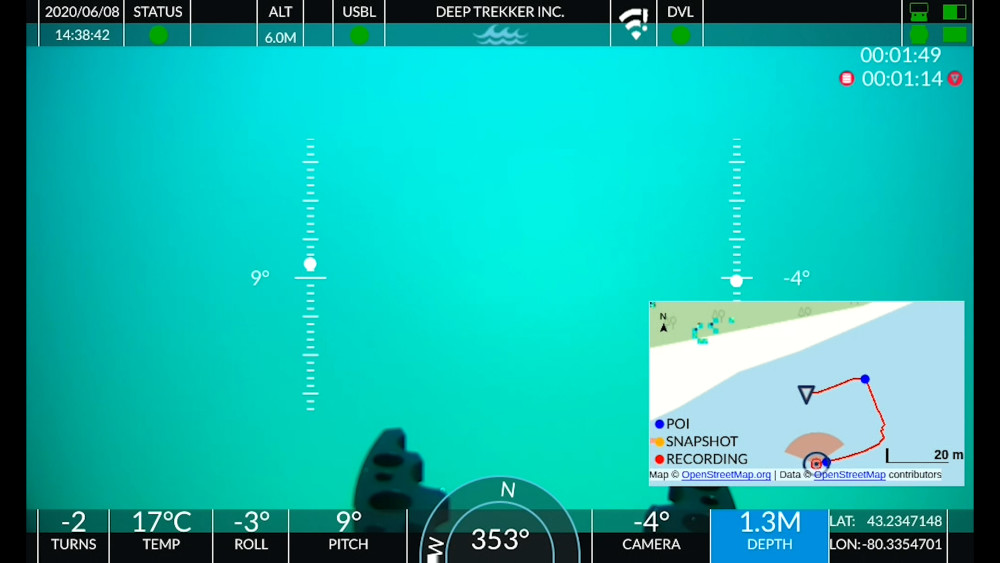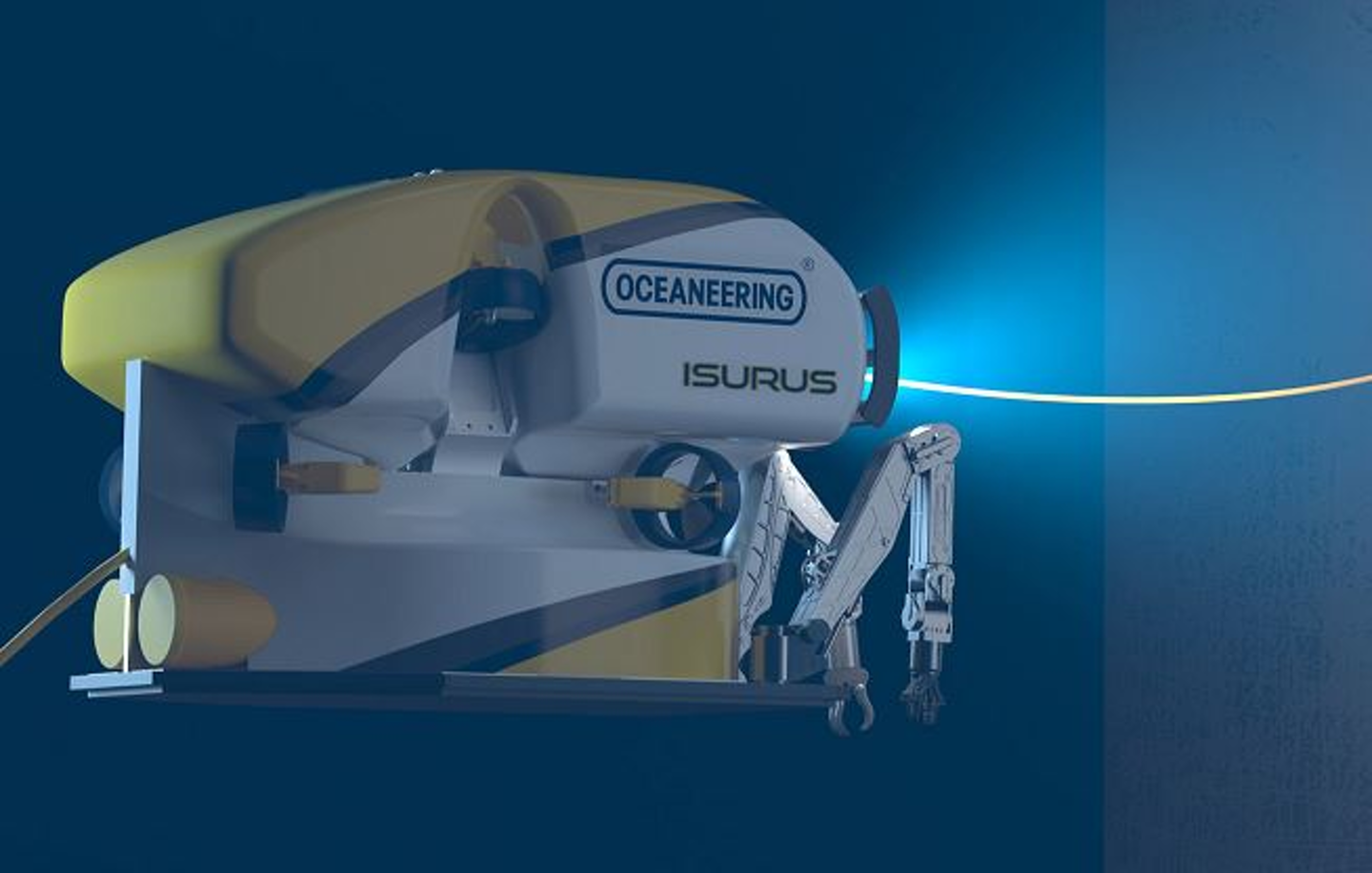Home › Forums › ROV › ROV Employment Discussion › Oil & Gas or Cable work ?
- This topic has 35 replies, 11 voices, and was last updated 18 years, 1 month ago by
Andy Shiers.
-
AuthorPosts
-
September 26, 2006 at 9:41 am #218
Gina McLauchlan
ParticipantThis is one carried over from the old forum
Do oill & gas ROV personnel have what it takes to perform the job roles of Cable Work ROV ‘s ?
Myself I,ve only worked in the cable industry & never intend to work Oil & Gas !
September 26, 2006 at 9:41 am #8227Gina McLauchlan
ParticipantThis is one carried over from the old forum
What exactly does it take to work on a cable rov?
September 26, 2006 at 9:42 am #8228Gina McLauchlan
ParticipantThis is one carried over from the old forum
I’ve never really made a great distinction between the two tasks. In fact, twice in the last two years, during the same contract’s, I’ve switched between ‘oil & gas’ to ‘cable work’, then back again. Is that not normal? Whether Swepo (Swedish/Poland Power Transmissions) or Maersk Oil & Gas pays me, I don’t care, as long as I’m working. Maybe my attitude is such, by virtue of being freelance. Interesting!
Clonk, you have me intrigued. What do you feel, the major differences are? What is so off-putting about oil and gas work? What are your thoughts on oceanic research and salvage jobs? Maybe one day there will be ‘Reality ROV TV’, where big companies pit their biggest and fiercest ROV’s against other companies, beamed live to millions of watchers around the globe. ‘Manips at dawn’……….’ Marauders of the Marianas’. Now there’s a good ROV job! Sorry, got carried away there.
P.S. If there are any media magnates out there that want to franchise the idea, then I want a cut!!
September 26, 2006 at 9:43 am #8229Gina McLauchlan
ParticipantThis is one carried over from the old forum
mmmm The Baron , I think you’ve missunderstood my posting , I have never worked in Oil & Gas & therefore dont know what the differences are but would like to know whats involved ?
I,m sure when it comes to survey work on rigs its a far cry from trenching / surveying cables with workclass ROV’s ? I,m also sure that the maintenance / fault diagnosis & repair of workclass ROV’s way exceeds that of a simple eyeball ?
I also realise that Oil & Gas also use workclass ROV’s which when it comes to maintenance / repair are pretty much the same as Cable workclass ROV’s.
But the methods of operating both systems in 2 industries must be different ? Prehaps you can tell me after all you seem to jump between both ?
September 26, 2006 at 9:43 am #8230Gina McLauchlan
ParticipantThis is one carried over from the old forum
The difference is Cable and trenchin’ is boring platform inspection is flying
September 26, 2006 at 9:44 am #8231Gina McLauchlan
ParticipantThis is one carried over from the old forum
Boring ? I find it very rewarding especially the reapir maintenance & wages 😀
September 26, 2006 at 9:45 am #8232Gina McLauchlan
ParticipantThis is one carried over from the old forum
Lost boy Stick to what you know best RIGS ( eyeballs ) 😀 😀 great great
September 26, 2006 at 9:46 am #8233Gina McLauchlan
ParticipantThis is one carried over from the old forum
I was kind of hoping that this doesn’t turn into an ‘us and them’ topic, as most experienced guys out there have no problem working both sides of the fence. What I would say is that flying skills have to come to the fore when dealing with survey/inspection tasks around oilfields. This does not lessen the burdon of faultfinding/maintenance, as all ROV’s have a penchant for failing.
In essence, flying skills take precedence over fixing skills when the client wants you to survey his installation, and get out of his way, ASAP. Often is the case that the level of flying skill results in the ROV failure in the first place.
I’m not prepared to take anything away from people who work purely cable, or oil and gas. It’s horses for courses.
Lostboy could give you an excellent description of jacket inspection, and the conditions that you would find yourself up against.
September 26, 2006 at 9:46 am #8234Gina McLauchlan
ParticipantThis is one carried over from the old forum
HI
Just thought I`d post haven`t done for a bit, it should be nice easy one this not to contentious but then again!! 14 years or so and about a 60/40 split so dont really notice the distinction as in reality most cable ROV`s are a standard ROV with a jet and track pack added so from a maintenance point of view the cable rov`s are way more labour intensive as you are basically grit blasting the sea bed so consequentially bearing pumps fail or wear oil contamination if sysems are conected etc just an overall nightmare for me ace for new starts or trainees though as you get to know the system intemately!! From a flying point of view time is where its at, in oil its minutes so depending on what your doing you`ll be lucky to wrestle the sticks of the experianced guys rep over the shoulder etc or macho big boys toys thing. Cable is sort of easier if all the sensors are working and the seabed is just right then long stints in the seat but nothing to scary. The fallout though if it goes wrong, it may take more runs to cmplete then feel the wrath of the staff guys with you who dont need the extra days pay (Stinky lepper). On the whole the oil rovs dont suffer too much operational pressure only to be operational and with down time not allowed to be accrued these days everyone worries about dinkin the sub so even less time on the sticks for the new guys and with very little cable work now not too much PLIB, just odd repairs and even less time with little maintenance. I guess thats my take on it other than if Im running the job I make sure enough guys get to fly if they want my stick time feel free I dont need it and I`ll try and keep the politics away from the shack make sure you have a full suite and comms on the bridge so no need for the man to drop in for a chat!!
JB2
September 26, 2006 at 9:47 am #8235Gina McLauchlan
ParticipantThis is one carried over from the old forum
You drink more on cable jobs 😆
There appears to be less stress on cable jobs and more personnel on each shift.
The vehicles used in cable jobs are larger in the fore which means there are more personnel needed this means that ‘new hands’ can be inaugurated with less fuss,mind you there are not that many contracts going on ( the slump ! ) at the moment.
On cable contracts the whole shabang is one company ie
Ship / vehicle / Survey and deck hands.
Gas and oil tend to have more Sub contractors in the plot !
Lump sum contracts means more pressure on individuals ( More back stabbing ) 😆
I agree with Baron about the fixing of things side though !
The cable contracts side tend to be better equiped, more spares ! where by the Oil/Gas on many occasions you have to ‘make do’ until parts are sent out as the Rov company has several vehicles needing the same spares and therefore you have to juggle the spares around depending on which contract is going to cost the most on downtime !
There tend not to be many dayrate jobs around anymore 👿
The Oil/Gas companies loose out on profits and even if they do come up,the Oil rep tries to snip the pounds off anyway he can down to the last second !October 12, 2006 at 11:56 am #8236didson
ParticipantI have worked in both fields and would agree with the faultfinding being no different in either discipline. Anyone who has only operated an ROV during cable recovery and trenching operations has never used a vehicle in anger. I was in the cable industry for five years and having moved over to oil and gas, my eyes have been opened. With hundreds of hours, of so-called flying thought I was in good stead to handle most ROV situations. Being dropped over the side until on seabed, setting the umbilical, asking for the vessel to operate in sub follow mode then trudge around looking for. all be it a needle in a haystack is not even close to flying or becoming an ROV pilot. There will be many so called Sub engineers and techs snorting at this reply and I could name a few. If you have not flown it, you are not a pilot.
October 12, 2006 at 12:49 pm #8237K2
ParticipantDidson
You sound like you’ve just done your first oil & gas job 😆 And have little ‘real’ experience in using cable ROVs 😕
If your five years amounts to cable jointing/ occassional ROV work then trundling along the seabed with all your auto functions engaged, trim pots set etc isn’t going to give you much in the way of ‘flying’ experience is it?
I wouldn’t be so quick to dismiss cable work, there are many different scenarios which you’ve obviously not had the opportunity to experience.
But hey, why not be competent in both arenas? At the end of the day a ROV is a ROV and a day rate is a day rate the only difference is oil & gas can be more stimulating.
Oh yea, I’ve worked both so I’m not ‘snorting’!!
😉
October 14, 2006 at 12:55 pm #8238didson
ParticipantAh K2,
We meet again! You have just written in three lines everything you need to known when operating a cable trencher except for switching on the water pumps! If you have operated in both fields you must see how easy cable opps is! Think about all the Sub engineers and techs who entered in the industry through Global .The would @h$t a breeze block if asked to work dive support next to a platform. Most of them qualified on ploughs! I was lucky enough to work with some extremely experienced personnel who new their job inside out. All of them from oil and gas. I do agree it’s very handy to know all aspects of subsea work. As for this being my first oil and gas job, I’ve had a good few.
Please fell free to explain all the different scenarios which I’ve obviously not had the opportunity to experience! Cable not on the seabed, oh my a suspension how will I ever deal with that! Are you getting a hard time because of your GMSL back ground and you feel you have to defend yourself.
October 14, 2006 at 1:27 pm #8239Philip Pedlow
ParticipantHmmmm
Interesting….looking forward to seeing how this goes. 😯
October 14, 2006 at 2:21 pm #8240K2
Participantdidson
Yup, from your comments so far perhaps you were ‘lucky enough to work with some extremely experienced personnel who new their job inside out’ 😆 Should you wish to gain additional knowledge/ experience of cable work with submersibles, go and work for a cable company 😆
Hey, relax, I didn’t say cable work wasn’t easy provided you know the equipment and have adequate experience, just like oil and gas work or any work come to that. What I did attempt to put across is that there is experience to be gained in the cable world that would be beneficial to oil & gas and vice versa. When you’ve sat next to a ‘top’ oil & gas pilot and watch him manoevuer the sub around a Compatt several times in an attempt to pick it up with the manips you may see where I’m comming from 😆
I’m not sure I (and certainly my colleagues) would agree with your comments on cable ROV guys and breeze blocks. I know several supervisors and pilot/techs who are currently working in the oil & gas industry for SS7, Sonsub, Oceaneering, Canyon, SSI all with a purely cable background and they’re all doing fine. I also know a few ex jointers and cable engineers who are making good money as ROV pilots off West Africa as I write. 😆
So, as I said, why not become competent in all aspects of both arenas, a ROV is a ROV………..
😉
Check your PMs 8)
-
AuthorPosts
- You must be logged in to reply to this topic.



